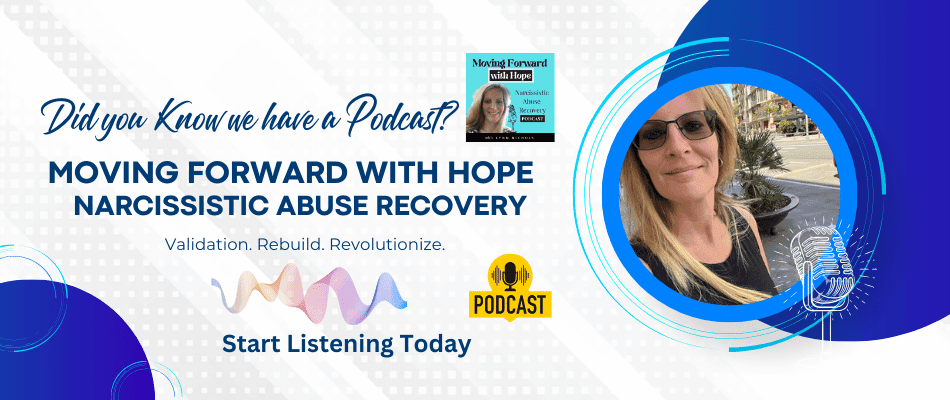Mastering Control: 5 Covert Motives Behind Narcissists' Gaslighting Tactics
Is it All About Control?
Gaslighting is a common tactic used by narcissists to manipulate and control their victims.
It involves denying the reality of a situation, making the victim doubt their own perceptions, and making them question their own sanity.
Gaslighting can have devastating effects on the victim, leading to feelings of confusion, self-doubt, and anxiety. In this article, we will explore the five reasons why narcissists gaslight their victims.
Table of Contents
To Maintain Control
Narcissists thrive on control, and gaslighting is one of the many ways they maintain that control. By making their victim doubt their own perceptions, the narcissist gains power over them.
The victim may begin to rely on the narcissist for information, guidance, and validation, leading to an unhealthy dependency on the narcissist.
Gaslighting also allows the narcissist to deflect blame and avoid taking responsibility for their actions. They can manipulate the victim into believing that they are the problem, and that the victim’s perceptions are flawed. This allows the narcissist to continue their destructive behavior without consequence.
Watch the Choreographed Video Here!
Listen to the Podcast Here!
To Protect the Ego
Narcissists have an inflated sense of self-importance, and their ego is incredibly fragile.
Gaslighting allows the narcissist to protect their ego by denying any flaws or shortcomings. They may twist the truth or manipulate facts to make themselves appear infallible, and to avoid any criticism or negative feedback.
Gaslighting also allows the narcissist to maintain their delusions of grandeur.
They may present themselves as more successful, intelligent, or attractive than they actually are, and make the victim doubt their own perceptions.
By creating an alternate reality, the narcissist can avoid facing the truth about themselves and their limitations.
To Undermine the Victim's Confidence
Gaslighting is an effective way for the narcissist to undermine the victim’s confidence and self-esteem. By making the victim doubt their own perceptions, the narcissist can erode their sense of self-worth.
The victim may begin to question their own judgment, second-guess their decisions, and feel inadequate or incompetent.
Gaslighting can also be used to isolate the victim from their support network. The narcissist may criticize the victim’s friends or family, and make them doubt the intentions of those who care about them.
This can lead to a sense of loneliness and helplessness, and make the victim more dependent on the narcissist for validation and support.
To Maintain the Illusion of Perfection
Narcissists often present a perfect image to the outside world, and gaslighting is one way they maintain that illusion. By denying any flaws or imperfections, the narcissist can present themselves as flawless and infallible. They may project their own insecurities onto the victim, and make them feel inadequate or flawed in comparison.
Gaslighting can also be used to manipulate the victim into conforming to the narcissist’s expectations.
The victim may be told that they are not living up to the narcissist’s standards, and that they need to change in order to be accepted or loved. This can lead to a sense of inadequacy and a constant need to please the narcissist.
To Gain Attention and Validation
It’s uncanny, the very thing they are unable to provide is the very thing they need themselves.
Narcissists crave attention and validation, and gaslighting is one way they can get it. By creating drama and conflict, the narcissist can draw attention to themselves and make themselves the center of attention. They may also manipulate the victim into feeling sorry for them, and use their victimhood as a way to gain sympathy and support.
Gaslighting can also be used to create a sense of superiority. The narcissist may present themselves as the only one who truly understands the situation, and make the victim feel ignorant or foolish.
Narcissists use gaslighting to maintain control, protect their egos, undermine the victim’s confidence, maintain the illusion of perfection, and gain attention and validation.
By denying the reality of a situation and making the victim doubt their own perceptions, the narcissist gains power over them.
Gaslighting can have devastating effects on the victim, leading to feelings of confusion, self-doubt, and anxiety. It is important to recognize the signs of gaslighting and seek help to break free from the cycle of abuse.
The Element of Control
Control is a key element in the use of gaslighting by narcissists. Narcissists are driven by a need for power and control over their surroundings and the people in their lives. Gaslighting is one of the tactics they use to maintain that control over their victims.
By manipulating the victim’s perception of reality, the narcissist gains power over them. The victim may begin to doubt their own perceptions and rely on the narcissist for guidance, validation, and information. This creates a power dynamic where the narcissist is in control and the victim is dependent on them.
Gaslighting also allows the narcissist to deflect blame and avoid taking responsibility for their actions. By making the victim doubt their own perceptions, the narcissist can convince them that they are the problem and that the victim’s perceptions are flawed. This allows the narcissist to continue their destructive behavior without consequences.
In some cases, the narcissist may even use gaslighting as a form of punishment or retaliation against the victim. If the victim challenges the narcissist’s control or refuses to comply with their demands, the narcissist may use gaslighting as a way to assert their power and punish the victim for their perceived defiance.
Overall, control is a fundamental element in the use of gaslighting by narcissists. It is important for victims to recognize the signs of gaslighting and seek help to break free from the cycle of abuse and regain control over their own lives.
Support our Site!
Our site is reader supported. If you have found our material to be beneficial to you, consider supporting us! We have many free resources on our site, including our YouTube Channel, Podcast, etc. Head to our Support Page to find the best method to do so. We thank you in advance! ~ Lynn









